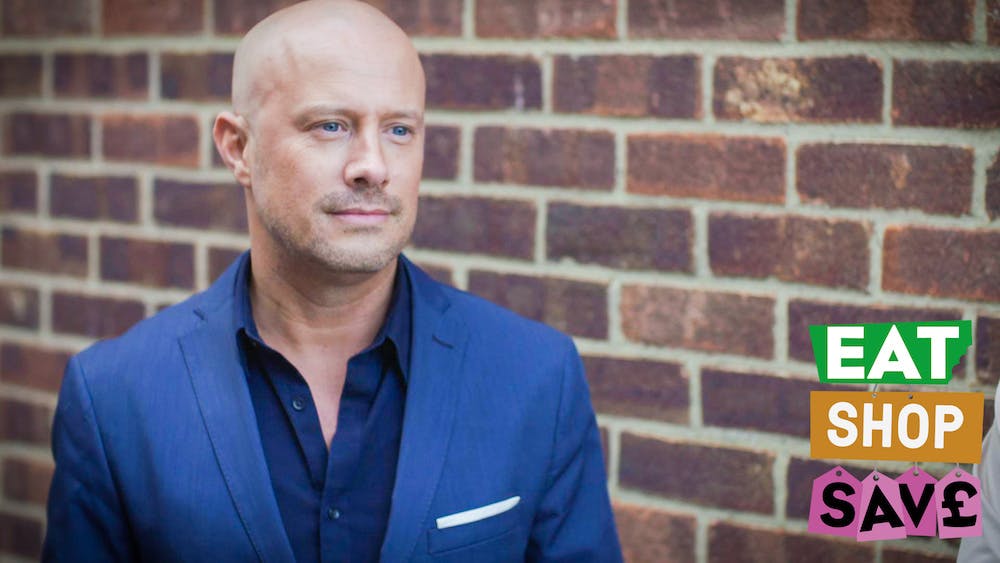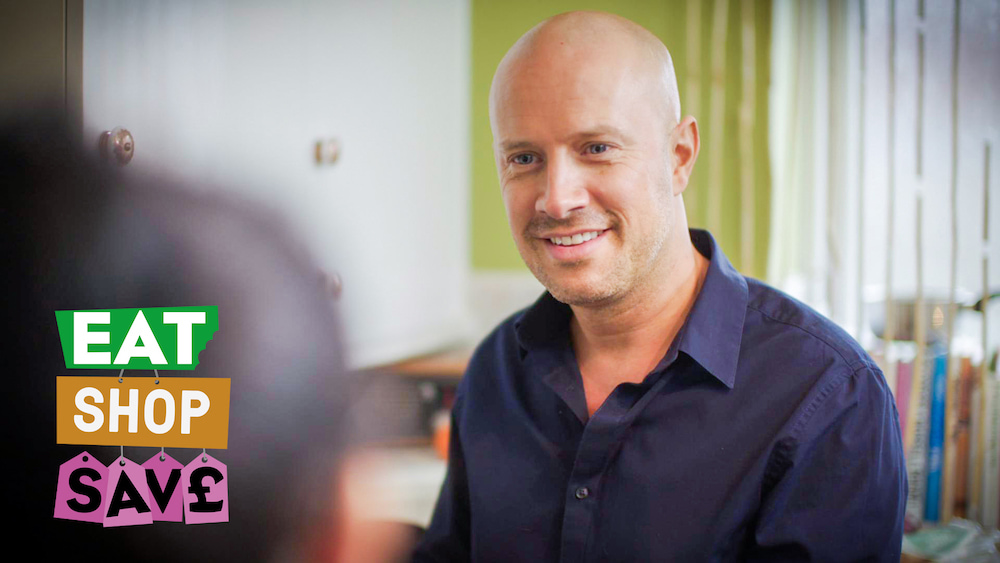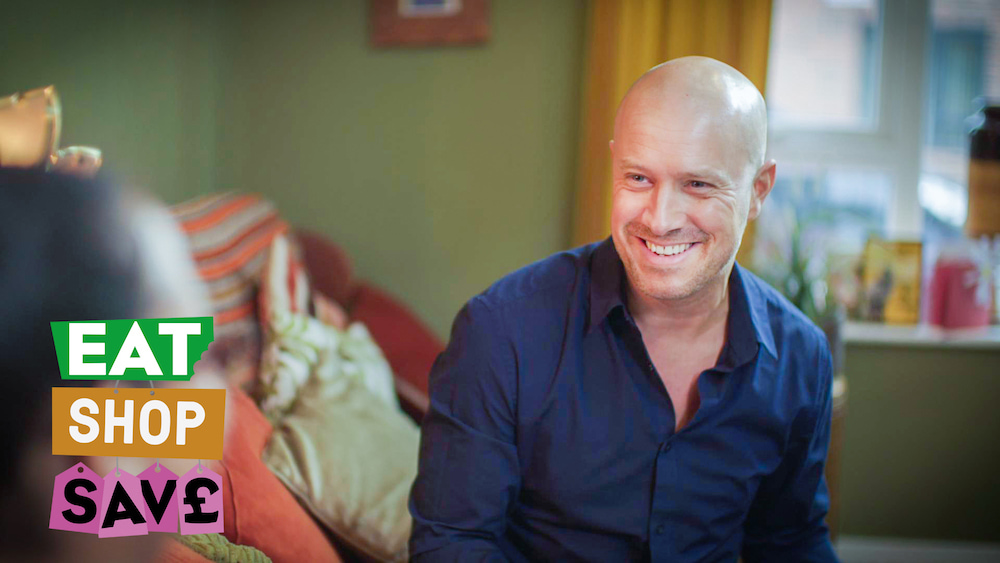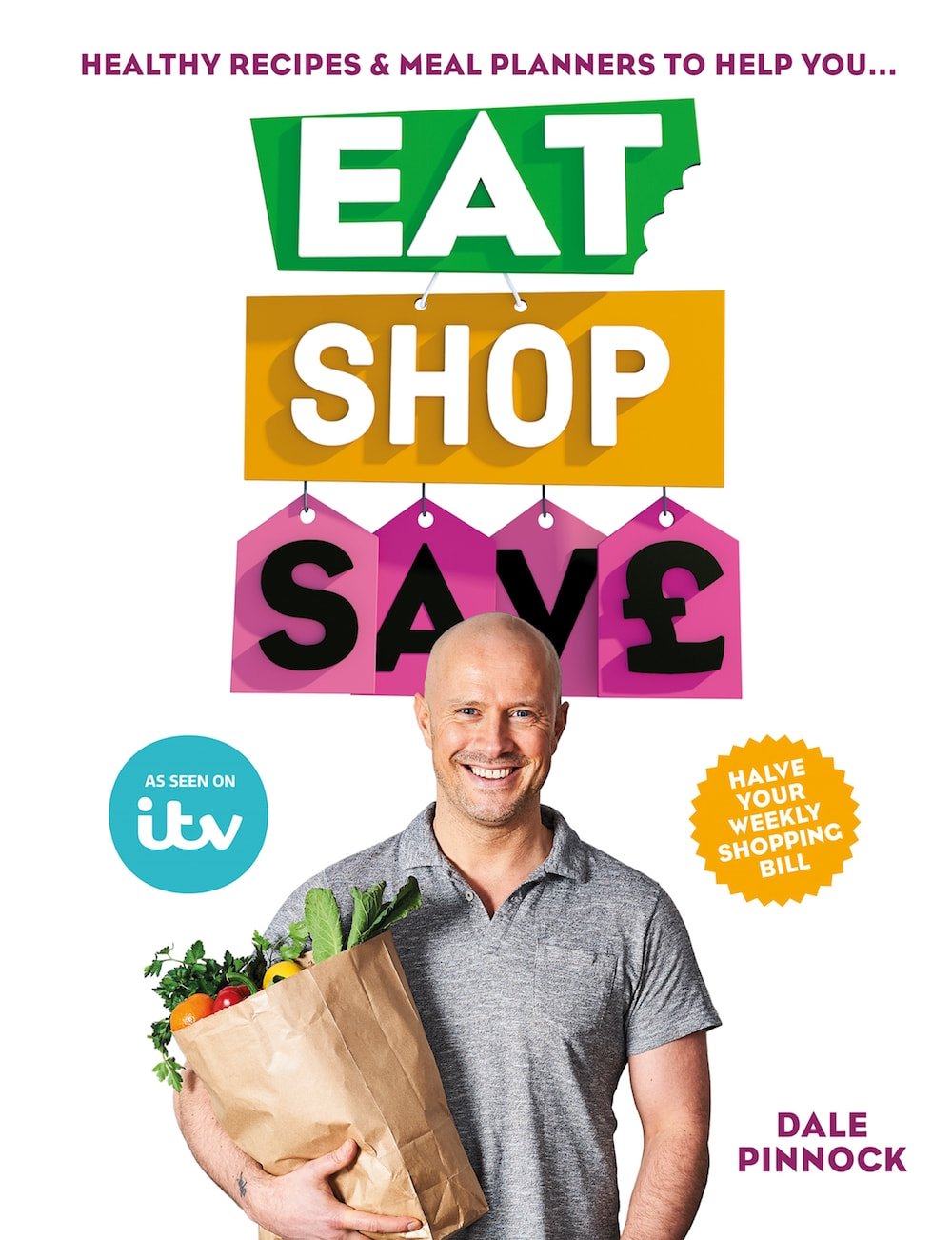
After his challenges with acne sparked a passion for nutrition, Dale Pinnock carved out a career in supporting people’s health. With his hit ITV show – Eat, Shop, Save – returning for a second series, Dale serves some nutritional nuggets on how to support our mental health, reduce waste and make the weekly shop go further
What inspired you to explore the mental boost we can get from food?
Seeing how well people respond mentally and emotionally to cleaning up their diet. A lot of people overlook the brain as being a nervous and physiological system, and as such it has its own specific nutritional requirements. If those aren’t met, the functionality of that system is going to be affected.

Photograohy | ITV 'Eat, Shop, Save'
With mental health, so many issues can exacerbate the situation. Obviously we have experiential stimuli, things can go wrong and create massive problems. We also have biochemical influences on mental health. While nutrition isn’t a “magic bullet”, it can support us on that biochemical level.
Things like zinc, magnesium, B vitamins, and iron are involved in neurotransmitter production and omega 3 fatty acids help regulate neurotransmitter receptor function. Magnesium is involved in the release of GABA, so in issues like anxiety we know this can help calm things down.
What are the biggest pressures on our shopping lists?
Sometimes people are under financial constraints, or lack confidence in the kitchen. Some people are working every hour god sends. Sometimes there are fussy eaters in the family.
There’s lots of practical ways of addressing that, no matter what your situation is. In the show, there’s nothing sensationalist and we’re not turning up to a council estate with a bag from Whole Foods. We look at families and their unique situations, what’s local, and tweak their day-to-day life. Simple hacks can make a world of difference.
What stands out with the families you have worked with on the show?
All but one of the families we worked with really wanted to change. So I don’t think we are a nation that couldn’t give a monkey’s about our own health. I think a lot of us are conscious that eating healthier is important.
The problem was getting clarity on what a good diet looks like and what healthy means. The wonderful revelation has been seeing people learn simple concepts. In the last season, people were losing excess weight, sleeping better and meal times were less traumatic. All of these things improved with the tiniest of changes.

Photograohy | ITV 'Eat, Shop, Save'
What’s the secret to being more adventurous with food?
Start with what they’re prepared to eat in the first place, then work it out. In the last series, there was a little girl who wouldn’t try any vegetables other than peas. She was partial to a chicken curry. So we created a potato soup with garlic and onions, sauteed those, added sweet potato and a little bit of stock, simmered it, pureed it and then added turmeric, cumin and garam masala to make a base. We then cooked the chicken in that sauce, so it was looking and tasting a lot like a restaurant korma.
She loved it – half way through the meal we said: “That’s sweet potato you’re eating.” Sometimes it’s just the texture or smell that people didn’t like. There’s no reason why you can’t alter things, tweak flavours, and change the state of the ingredient.
How do we maximise our grocery shop to get the right balance between spending and saving on food?
It depends where you shop. I always encourage people to understand what is in your local area. If you’re reliant on the big chain supermarket, sometimes you may be overspending.
See if you have a market nearby – sometimes you can spend less than a tenner and come back with bags and bags of fresh ingredients. Think outside of the box when it comes to your shopping, because so many people go to the same place week-in, week-out.
Food waste is a worry too. What can we do to maximise our cupboard shelf-life?
I’m quite a fan of frozen fruit and veg; nutritionally speaking, freezing is no less superior than buying as fresh. Freezing protects a lot of the fragile nutrients like the B vitamins and vitamin C. When you compare the frozen stuff with that sold as fresh, frozen things have higher levels of the micronutrients anyway. It’s an ideal way to do things; take out what you need from the packet and it will last for months and months.

'Eat, Shop, Save'
What are most people missing from their diets?
Omega 3 fatty acids is a huge one. What you get from oily fish is vital for cardiovascular health and the brain particularly. With mental health, omega 3 fatty acids are very important, but we don’t get anywhere near enough, and we tend to get too much omega 6, which can contribute to inflammatory overload. Cutting back on vegetable oils, margarine, processed food, and increasing your intake of oily fish can get the balance right. Omega 6 is important in tiny amounts, but on average we consume 23 times more than what we actually need each day.
How can we allocate time in the kitchen into our daily routine?
If time is the issue, think of it less as a daily routine and more of a weekly one. I always encourage people to batch cook. If you have a day where you’ve got a couple of spare hours, get in the kitchen, cook your favourite dishes but three, four, five times bigger than you normally would. Then freeze individual portions.
When you’re busy in the week, all you’ve got to do is bang something out of the freezer in the morning. You come home from work and it’s defrosted in the fridge, warm it through, job done. It’s such a simple way to get ahead. I have a whole chapter in my book dedicated to batch cooking as it was such a hit last series.
Watch ‘Eat, Shop, Save’ on the ITV Hub and try all of Dale Pinnock’s recipes from his book “Eat, Shop, Save” (Mitchell Beazley, £14.99).

